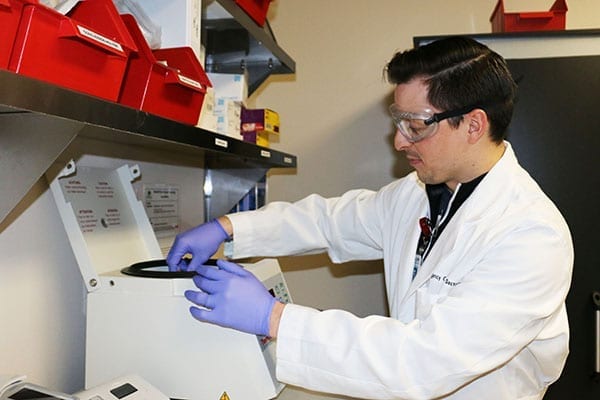Core Services
The ECRC offers multiple services tailored to the needs of the individual clinical investigation.
Feasibility Analysis – The ECRC offers consultation services as well as IT resources regarding the feasibility of the proposed research and execution in the emergency environment.
- Patient population: The ECRC will perform tailored searches of the ED electronic medical record to determine the overall historical frequency of patient presentation, along with variations in frequency based on seasonality, time of day, or day of the week.
- Patient identification strategies: The ECRC will optimize methods to rapidly and accurately identify potential research subjects for the proposed study, to maximize the sensitivity/specificity of the screening methods toward the needs of the investigator.
- Protocol review – The ECRC can assist in developing or modifying a study protocol to best fit within the ED environment; identifying obstacles and proposing solutions to make the proposed research feasible in the ED.
- Specific study design expertise – review of proposals for adherence to the EQUATOR network guidelines; assistance with diagnostic analytical plan, systematic review methodology, and dissemination/implementation principles as they relate to the emergency care setting.
- Content expertise: public health, patient safety and quality, toxicology, diagnostics, dissemination and implementation, evidence based imaging, time-critical diagnosis including stroke and myocardial infarction, critical care, ultrasound, global health emergencies, and field-level access to pre-hospital networks and expertise in disaster management.
Recruitment Services – The ECRC provides electronic or personnel resources to optimize study patient identification.
- Computer Assisted Screening and Enrollment in the Emergency Department (CASE-ED) provides automated, comprehensive screening of potential subjects for the purpose of patient-oriented clinical research in the BJH ED. CASE-ED contains a database which receives all information entered into the electronic medical record of ED patients and updates every 15 minutes. Key data points that are often useful for identifying patients for a particular study include: age, gender, chief complaint, past medical history, vital signs, laboratory orders, laboratory results, radiology orders, medication orders, and diagnosis. ECRC informatics specialists can write a program which uses these data points to automatically identify potential study candidates and send a notification to ECRC or other study coordinator either by pager or email in real time. The ECRC will provide expertise based on past experience as to the best data points to use for a particular study in order to maximize sensitivity while maintaining good specificity. CASE-ED can thus provide 24 hours a day, 7 days a week initial screening of patients.
- ECRC Coordinator screening services – The ECRC coordinators provides real-time, manual screening of patients in the ED (either alone or in combination with CASE-ED activations). When patients are identified who meet selection criteria for the study, the ECRC coordinators will contact the appropriate coordinator or investigator to allow them to enroll the patient.



Enrollment Services – The ECRC provides electronic or personnel resources to optimize study patient identification.
- The ECRC provides consent and enrollment services such as specimen collection, ECG, vital signs, assessments, or interventions as necessary for the study. Some studies may require the ECRC to complete all procedures for the initial visit in the ED and then hand off the patient to the primary investigator’s team for inpatient visits or follow up.